How to make your own classic '80s synth pad sound
Learn to program that staple of the ’80s pop and dance music hit: the synth pad
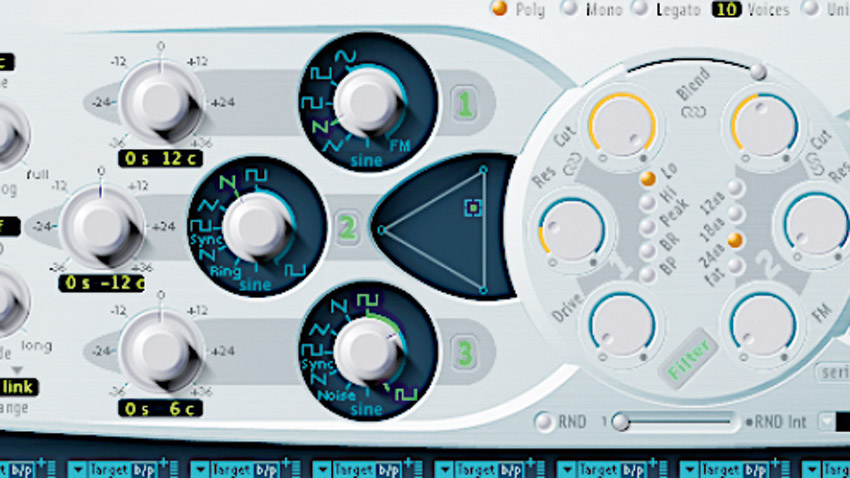
The big, swirly, back-combed pad is still a sound that many producers like to put to use in their contemporary tracks. Indeed, with the ongoing popularity of synthwave, and the never-ending fascination with '80s textures genreally, it's more in the spotlight than it has been for a while.
In this walkthrough, we'll show you how to work up just such a pad sounds. We're using Logic’s built-in ES2 synth, but any virtual analogue equivalent will do…
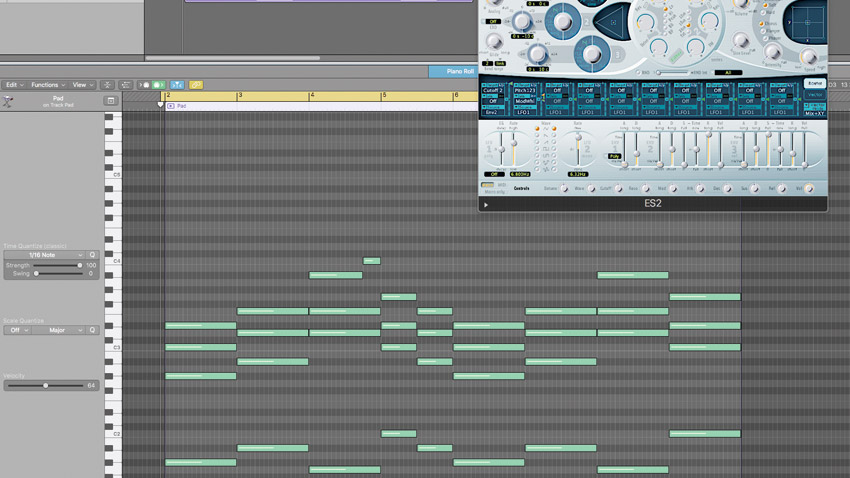
Step 1: We’re starting with a ‘scratch patch’ in Logic’s ES2 synthesiser, one that bears little resemblance to the warmth and richness of an ’80s pad. We have a single sawtooth wave oscillator with a wide-open filter. We program a chord progression which feels harmonically ‘of the era’.
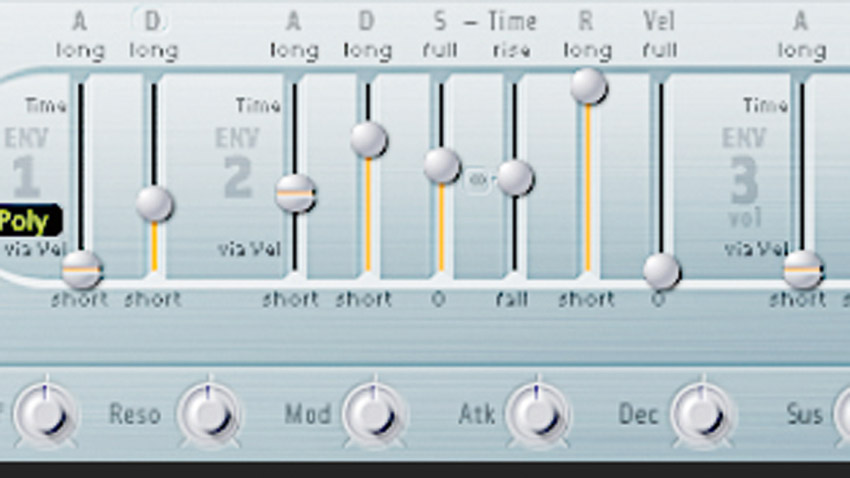
Step 2: We start by shaping the filter, keeping the 24dB low-pass response but dropping the cutoff point dramatically, so that the tone becomes smoother. We set an envelope to control the filter, with a 280ms attack time, a long decay (2.5 seconds) and a 50% sustain level.
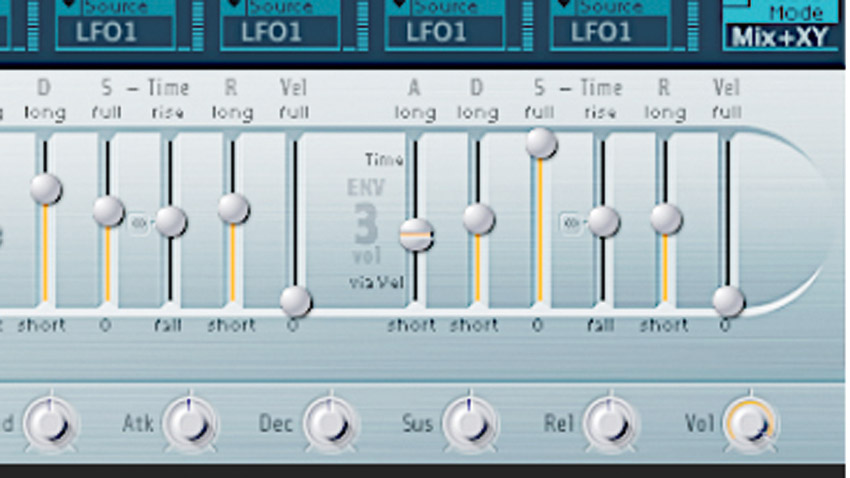
Step 3: Next, we shape the amp envelope. This gains a longer attack (300ms), full sustain level and a release time of 730ms. This softens the beginnings and ends of each note. We tweak the filter envelope, dropping the envelope-to-filter-cutoff amount a little more.
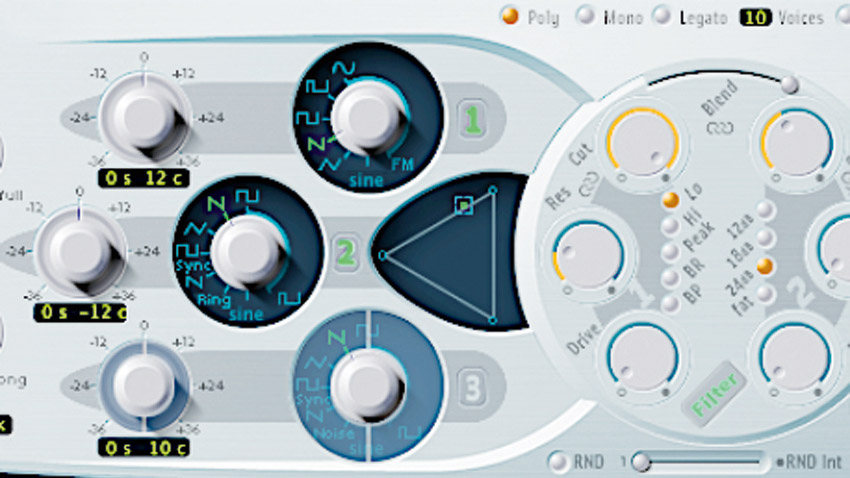
Step 4: Next, we shape the amp envelope. This gains a longer attack (300ms), full sustain level and a release time of 730ms, softening the beginnings and ends of each note. We tweak the filter envelope, dropping the envelope-to-filter-cutoff amount a little more.

Step 5: We add a third oscillator, this time using a square wave with variable pulse width. We audition a few ‘positions’ for pulse width before settling on a position that suits the other oscillators. We also detune this oscillator by 6 cents before setting a blend between all three waveforms.
Want all the hottest music and gear news, reviews, deals, features and more, direct to your inbox? Sign up here.
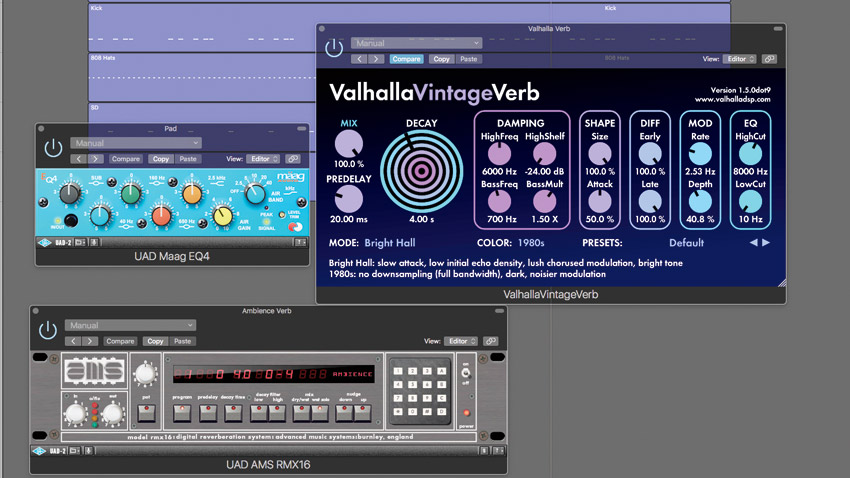
Step 6: Alongside our pad, we program Kick, Snare, Hat and Clap parts, as well as bringing in a classic ’80s synth bass sound and pattern. Effects-wise, we add two reverbs from UAD’s AMS RMX16 and Valhalla’s VintageVerb, plus some sheen from the Maag EQ4.
Future Music is the number one magazine for today's producers. Packed with technique and technology we'll help you make great new music. All-access artist interviews, in-depth gear reviews, essential production tutorials and much more. Every marvellous monthly edition features reliable reviews of the latest and greatest hardware and software technology and techniques, unparalleled advice, in-depth interviews, sensational free samples and so much more to improve the experience and outcome of your music-making.
